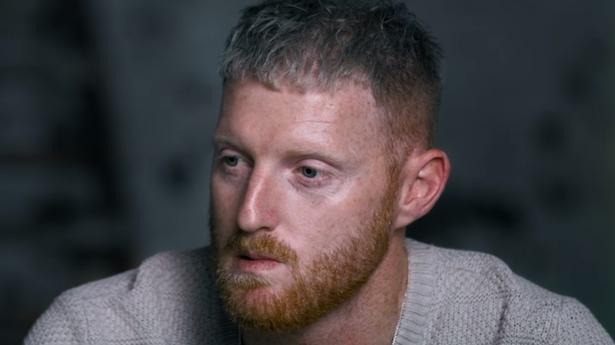
‘Ben Stokes: Phoenix from the Ashes’ review: Captivating take on mental health in modern sport
The Hindu
England cricketer Ben Stokes opens up on one of the most vulnerable phases of his life, in a documentary that reiterates the importance of mental health support
Call it divine timing that a documentary on Ben Stokes had to land on our OTT screens just after he churned out yet another match-winning performance, both with bat and ball. Stokes’s life and career as a superstar international cricketer has been defined by that word — timing. It’s been his best friend and worst enemy.
The celebrated English all-rounder is arguably one of the most influential international players in the last five years. Yet, in mid-2021, he couldn’t take it anymore, announcing an indefinite break from the game. During his most vulnerable phase, he sat down for a chat with Academy Award-winning director Sam Mendes ( American Beauty), which forms the background to the new documentary Ben Stokes: Phoenix from the Ashes.
Mendes declares at the beginning he’s a fan of cricket and is particularly intrigued by Ben Stokes, the man. He also tells us a fact we already knew but can never get tired of hearing — his life is a story you cannot script. Look back at some of the headlines Stokes has made, good or bad: the final over in the 2016 World T20 final; the Bristol pub assault a year later; the 2019 World Cup final and that dive at the crease that gave England four precious extra runs; and that Ashes jailbreak at Headingley a few months later.
Stokes is not the first professional England cricketer to open up on mental health battles. Earlier, opening batsman Marcus Trescothick did so courageously in his book ‘Coming Back To Me’, describing his panic attack in a Baroda hotel room in most graphic detail, something that led to his premature retirement. It set an important precedent, showing that it was okay for seemingly invincible people to feel like the walls are closing in, and to come clean about it.
That Stokes agreed to come on camera weeks after announcing his break was by itself fantastic progress in his recovery, but as Mendes was to learn, it was still hard to get words out of him. Seated in a large room in London, it resembles a televised counselling session between a therapist and his patient.
In there, Stokes describes what an anxiety attack actually feels like — like running away when entering a room full of people at a kid’s birthday party; freaking out at a dry cleaner’s when approached by a woman to sign a cricket ball. Stokes’s manager Neil Fairbrother (a former England batsman himself) talks about getting a panic call at 6 in the morning when his client was having a meltdown in the toilet.
Just as revealing during that chat is Stokes coming clean about what really happened on that September 2017 night at Bristol outside a nightclub, when after a brawl most ugly, Stokes was arrested and charged with affray. He was pronounced not guilty later by a local court. The cops released footage of Stokes handcuffed and sitting in a car and being told of his charges. Stokes was angered when two guys were “taking the piss out” of a male gay couple, and seconds after intervening, one of the men took about a bottle. Grainy CCTV footage has everything you need, or don’t need to see about what happened after that.













